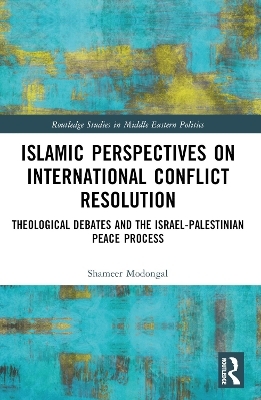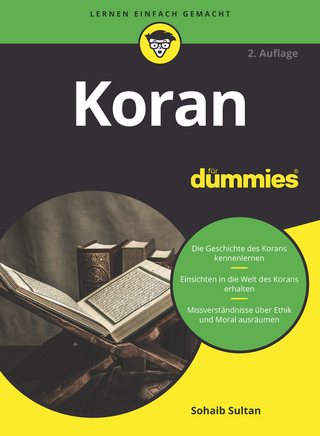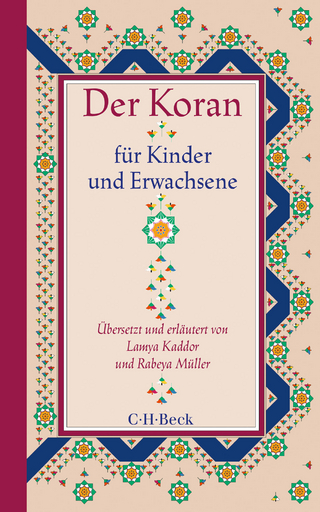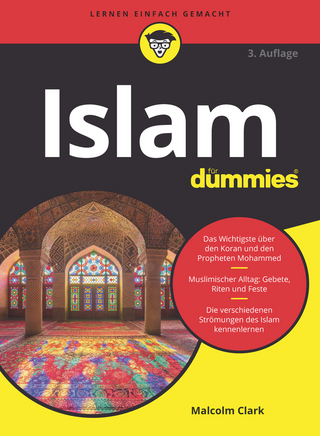
Islamic Perspectives on International Conflict Resolution
Theological Debates and the Israel-Palestinian Peace Process
Seiten
2024
Routledge (Verlag)
978-1-032-31550-8 (ISBN)
Routledge (Verlag)
978-1-032-31550-8 (ISBN)
Upturning the traditional view of religion as a source of conflict, this book studies Islamic perspectives of international conflict resolution, re-interpreting the possibility of Israel-Palestine reconciliation beyond traditional secular frameworks.
Beginning with an analysis of both classical and modern Islamic texts, the book provides a theoretical overview of Islamic conflict resolution before exploring the Israel-Palestine conflict in its historical, social and political dimensions. This framework allows for a real-world examination of Islamic conflict resolution in the context of Israel-Palestine theological debates. The author also critically assesses differing ideological and political views among Islamic scholars, divided by those supporting and those opposing a peace treaty between Israel and Palestine. Ultimately, it is argued that neglecting religion misses the opportunity to inject the spiritual dimension needed for reconciling the Israelis and Palestinians.
The book’s multi-disciplinary approach will be of interest to a range of academics and policymakers, including those involved in International Relations and Islamic Studies. However, its accessible prose and engaging content will also appeal to undergraduates and general readers interested in Middle Eastern politics.
Beginning with an analysis of both classical and modern Islamic texts, the book provides a theoretical overview of Islamic conflict resolution before exploring the Israel-Palestine conflict in its historical, social and political dimensions. This framework allows for a real-world examination of Islamic conflict resolution in the context of Israel-Palestine theological debates. The author also critically assesses differing ideological and political views among Islamic scholars, divided by those supporting and those opposing a peace treaty between Israel and Palestine. Ultimately, it is argued that neglecting religion misses the opportunity to inject the spiritual dimension needed for reconciling the Israelis and Palestinians.
The book’s multi-disciplinary approach will be of interest to a range of academics and policymakers, including those involved in International Relations and Islamic Studies. However, its accessible prose and engaging content will also appeal to undergraduates and general readers interested in Middle Eastern politics.
Shameer Modongal is currently Assistant Professor in West Asian Studies at the University of Kerala. He completed his doctoral studies in International Relations at Jawaharlal Nehru University (JNU), New Delhi.
1. Introduction 2. Islamic Principles of International Conflict Resolution 3. Religious Aspects of Israel-Palestine Conflict and Peace Process 4. Islamic Theological Debates on Conflict Resolution and Peace Treaties with Israel 5. Conclusion
| Erscheinungsdatum | 31.08.2023 |
|---|---|
| Reihe/Serie | Routledge Studies in Middle Eastern Politics |
| Zusatzinfo | 1 Tables, black and white |
| Verlagsort | London |
| Sprache | englisch |
| Maße | 156 x 234 mm |
| Gewicht | 394 g |
| Themenwelt | Geisteswissenschaften ► Religion / Theologie ► Islam |
| Sozialwissenschaften ► Politik / Verwaltung ► Europäische / Internationale Politik | |
| Sozialwissenschaften ► Soziologie ► Spezielle Soziologien | |
| ISBN-10 | 1-032-31550-4 / 1032315504 |
| ISBN-13 | 978-1-032-31550-8 / 9781032315508 |
| Zustand | Neuware |
| Haben Sie eine Frage zum Produkt? |
Mehr entdecken
aus dem Bereich
aus dem Bereich


